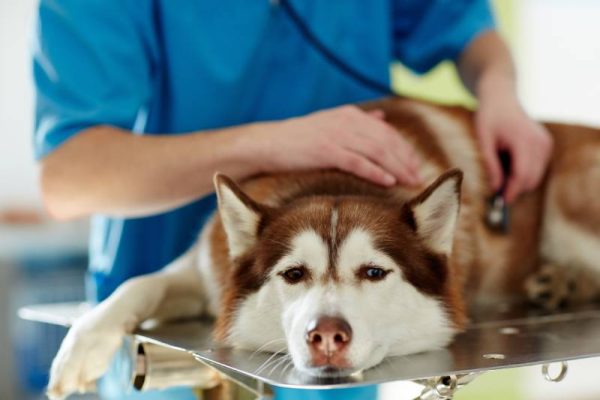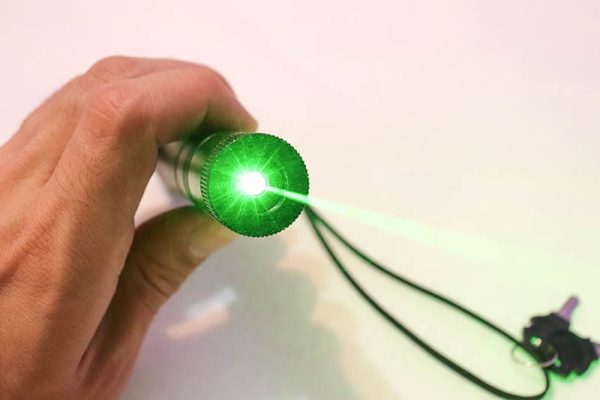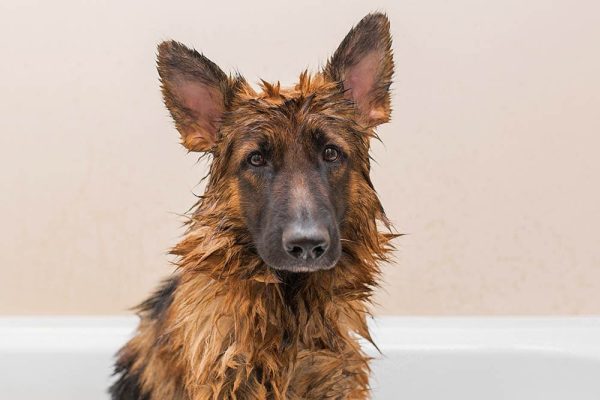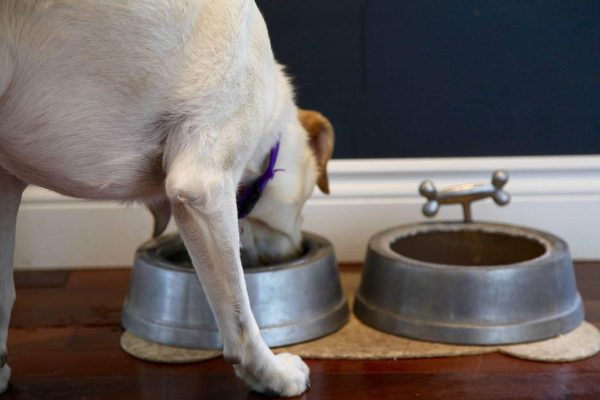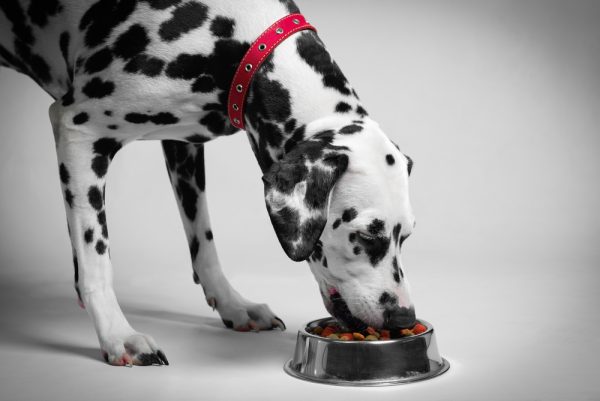A dog that smells fishy is considered unusual, and a fishy smell usually comes from your dog’s mouth, skin, ears, or perianal or genital area. Certain foods or poor hygiene could also leave your dog with a fishy odor that results in a foul smell. The first step to get rid of the fishy smell from your dog is understanding where it originates.
If you have noticed that your dog has a fishy odor, you should take them for a checkup at the veterinarian to rule out a health condition that can be causing a fishy odor from your dog’s body.
We have compiled a list of easy methods you can use to get rid of your dog’s fishy smell.

How to Get Rid of Fishy Smell From Your Dog
1. Take Your Dog to the Vet
If you notice a fishy smell from your dog, the first step is to take them to the vet. The fishy smell is often caused by a health problem like a dental issue, impacted anal glands, or skin and ear infections. Your veterinarian is the best person to determine if your dog has a health issue and get you started on the appropriate treatment.
One of the most common causes of a fishy smell in dogs is an anal gland issue. The anal glands, located on both sides of the anus, contain a smelly liquid that aids in scent-marking and communication. When everything’s working normally, these glands get expressed when your dog poops. However, if the glands don’t express fully, the smelly fluid can build up and leak out.
Your vet can easily check your dog to determine the root cause of the problem and establish a treatment plan to help reduce the fishy smell.

2. Unblock Anal Sacs
Impacted anal glands or anal sacs can lead to a fishy odor near your dog’s butt. Unless your vet has instructed you on how to empty your dog’s anal glands, the best option is to take your dog to a veterinarian to confirm that the anal sacs are impacted (and not infected or developed an abscess) and help with the blockage through an anal gland expression. If the anal glands are infected, a veterinarian will prescribe a treatment to help with the infection.
Anal gland problems seem to be more common in small dog breeds or overweight dogs, and they will need to be manually emptied as the secretions are causing the fishy odor.
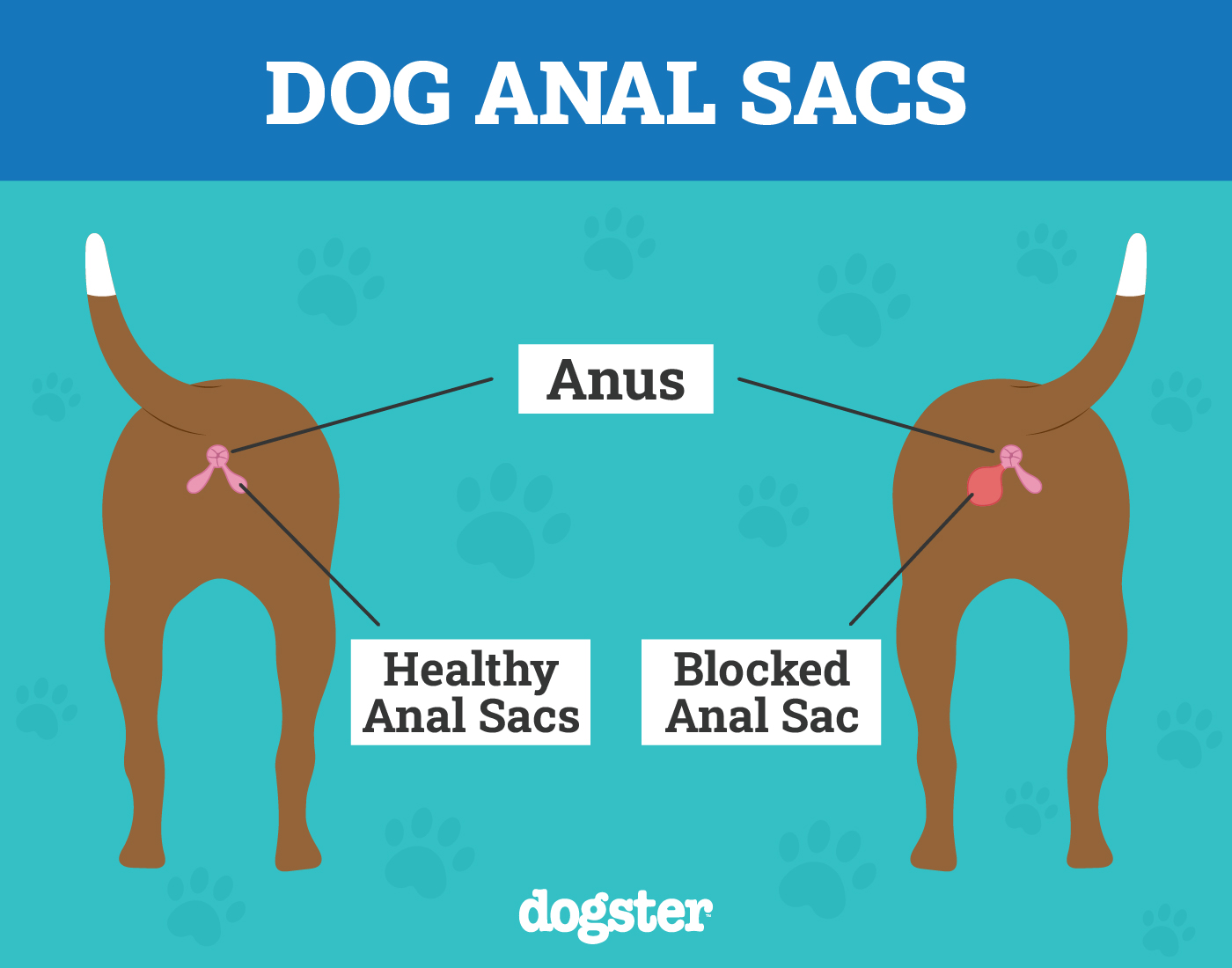
3. Dental Hygiene
A fishy odor emitting from your dog’s mouth can be very unpleasant, especially when they pant or breathe close to your face. Certain dental problems such as a buildup of tartar and periodontal disease can cause halitosis. Certain mouth injuries such as a broken tooth, a foreign body, or injuries to your dogs’ gums can cause a fishy odor from bacterial growth.
Take care of your dogs’ teeth by using an enzymatic, dog-safe toothpaste recommended by a veterinarian to clean your dogs’ teeth. Your dog’s teeth and mouth should always be assessed by your veterinarian for any issues that can be causing the fishy smell.
In some cases, a veterinarian will recommend oral treatment such as dental scale & polish, tooth extraction, and/or prescribe an antibiotic to help fight off any infections in your dog’s mouth causing bad breath.
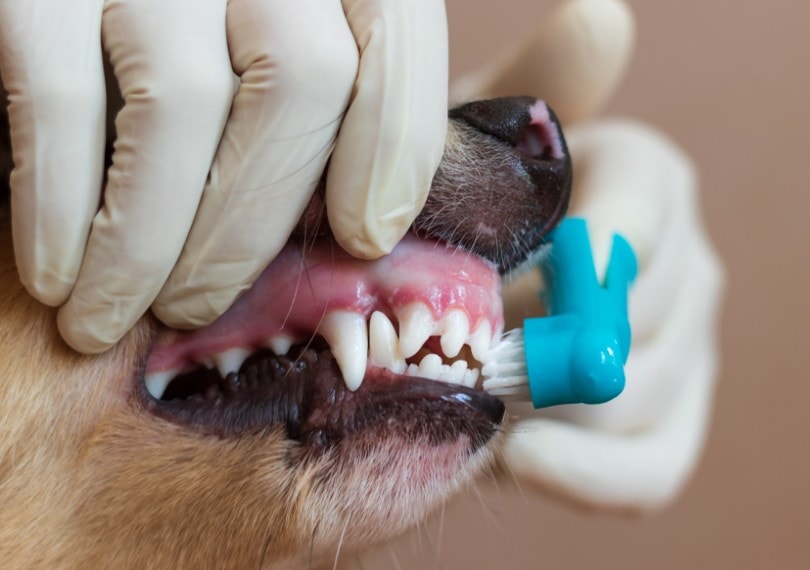
4. Treatment of UTI Infections
Fishy-smelling urine can be caused by a urinary tract infection (UTI) from bacterial overgrowth. Your dog’s veterinarian will request a urinalysis from a pee sample and if your dog is found to have a UTI, then the veterinarian will prescribe the right treatment. In the meantime, you will need to bathe your dog and pay special attention to their hind legs and stomach when shampooing, as some of the fishy urine might be stuck on their fur.

5. Check their skin and ears
Your dog may have a primary skin condition such as an allergy which can, in some cases, cause a secondary bacterial or yeast infection. Seborrhea is another problem that will cause a fishy odor from your dog’s fur or ears. These conditions require a diagnosis and a treatment plan which often includes a medicated shampoo.
6. Dietary Changes
If your dog’s food contains fish-based ingredients, it can cause your dog’s breath to smell fishy after they have eaten. The fishy food can also get caught around your mouth and dry, causing a foul-smelling odor. If your dog’s diet is the source of the fishy odor and it’s causing you trouble, speak to your dog’s veterinarian about changing their diet to one that doesn’t contain fish as the main ingredient.

Final Thoughts
A fishy smell from your dog’s body or breath is unpleasant, and it is not normal on most occasions. The fishy smell can be caused by an underlying skin health issue or dental disease and even problems with your dog’s urinary health.
A fishy smell can be simple to solve if it is caused by your dog’s diet, but certain health issues will require treatment from a veterinarian after examination to determine what is causing your dog’s fishy smell.
Featured Image Credit: san4ezz, Shutterstock




